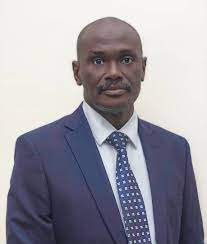As agitations from beneficiaries of the sundry Federal Government’s intervention loans continue to mount on the Central Bank of Nigeria (CBN) and the government to write off the loans, a key player in the disbursement value chain and Managing Director of NIRSAL Microfinance Bank, Alhaji Abubakar Kure, has expressed his opposition to the clamour and urged the CBN management not to to the pressure.
The intervention loans, which run into several billions of Naira, were disbursed under the Anchor Borrowers Programme (ABP), Targeted Credit Facility (TCF) and Agri-Business/Small and Medium Enterprise Investment Scheme (AGSMEIS) between years 2019 and 2023 to Nigerians engaging mainly in Micro, Small and Medium Enterprises (MSMEs) in the agribusiness sector.
A news report from The Whistler, an online platform, at the weekend quoted Kure as expressing his views on the pending loans which the NIRSAL facilitated in disbursing, putting the amount disbursed through the AGSMEIS, TCF and the Anchor Borrowers Programme by the MfB so far at about N555 billion.
Specifically, Kure disclosed that the micro lender disbursed about N39 billion ($26 million) under the ABP; N118 billion under the AGSMEIS and that under the Targeted Credit Facility (TCF) the NIRSAL MfB disbursed N398 billion ($265 million).
Commenting on the pressure by some beneficiaries of the loans for the government to write them off, the banker said: “There is pressure in the country to write off the loans but at the last session I had with the CBN management, I advised against it. I will not support it.
“I don’t support it for the reason that it is a moral hazard. Any time the government or banks come out with a loan or intervention; people think it is a grant that they will not pay back.
“My stand is that we should recover as much as we can because if we say write off the loans, it is not every Nigerian that got the loan for God’s sake. Nigeria has a population of 200 million people and maybe, only a little over a million got the loans. What then happens to those who did not benefit from the loan?
“If it is on equal share, I would have supported the agitation to write off, and some people did not make meaningful use of the loan. Some people diverted it to go and marry women and buy iPhones and things that are not asset generating, so people should pay back.
“When you write it off, anytime the government comes with a loan, they will not use it well, they will divert it to other things, thinking the government will come back and write it off again”, Kure added.
According to him, NIRSAL MfB has so far recovered about 20 percent of the loans advanced to beneficiaries across the business sectors so far and is ready to continue its loan repayment drives with a view to ensuring that those who took the loans don’t default in repaying back.






